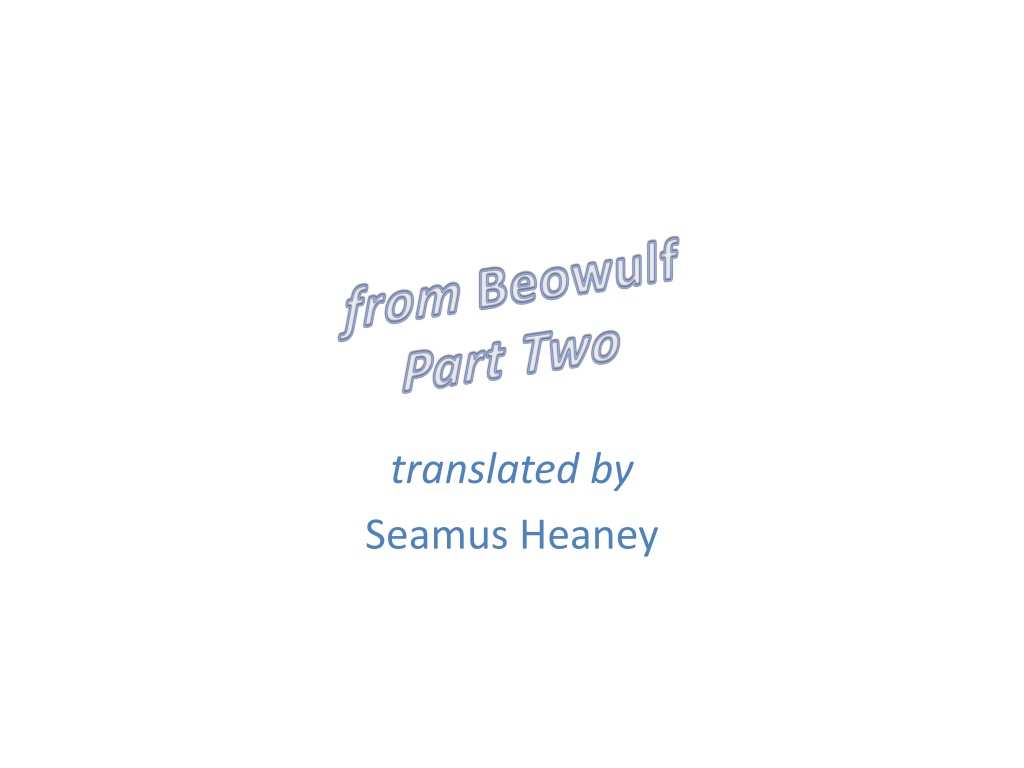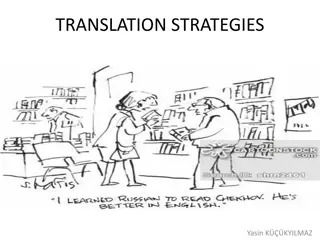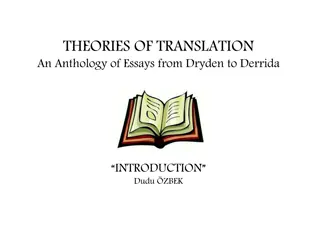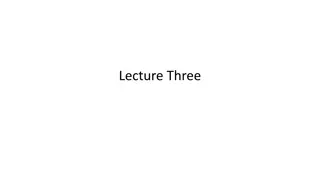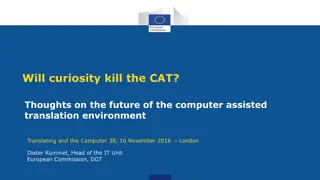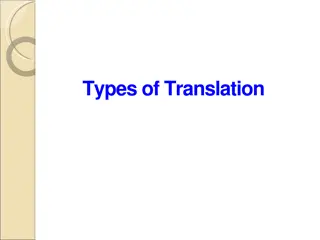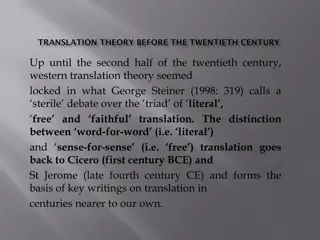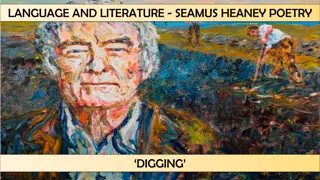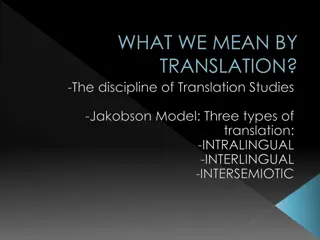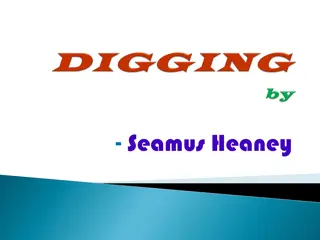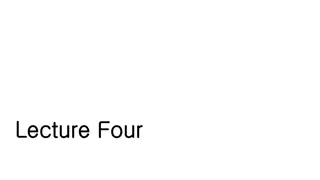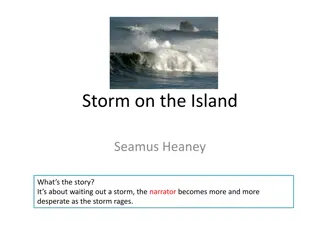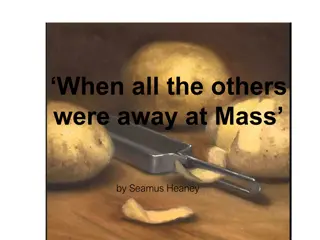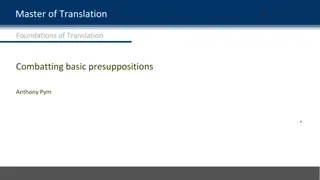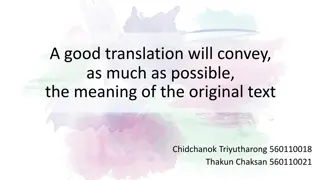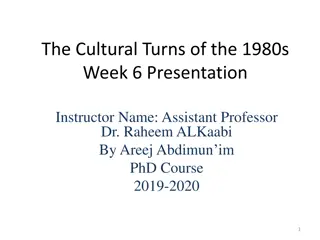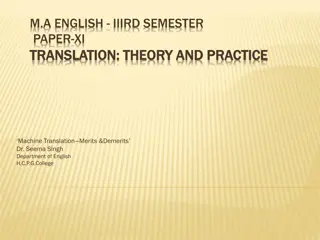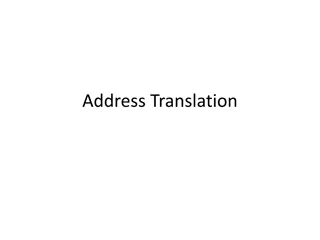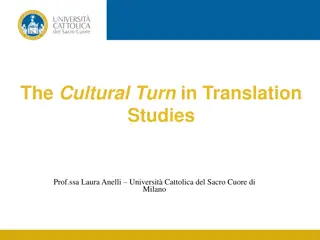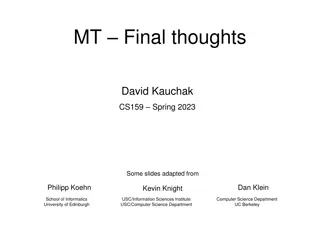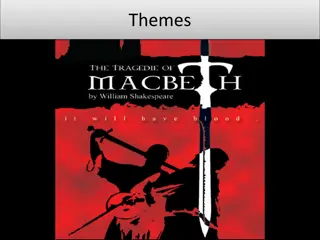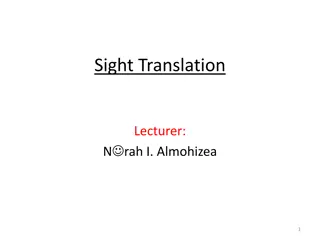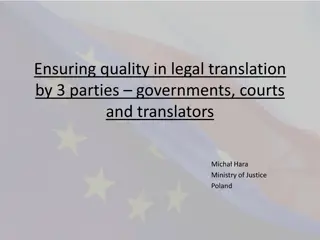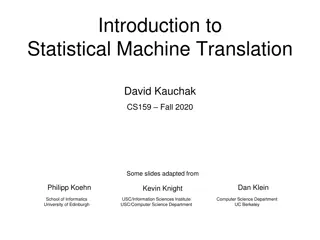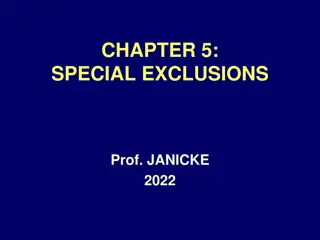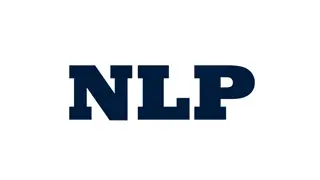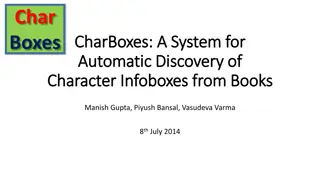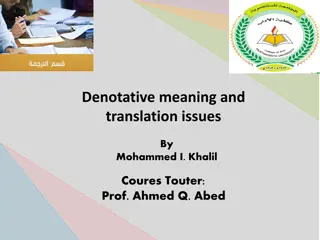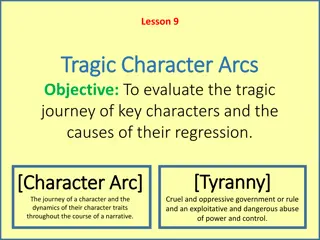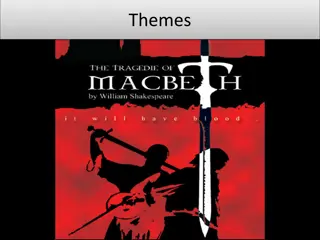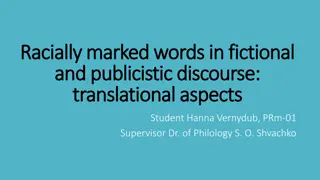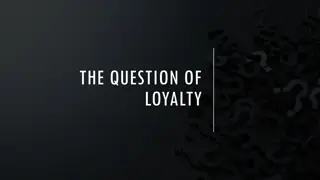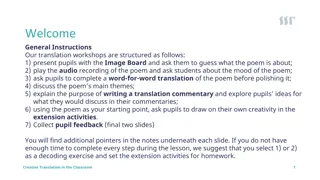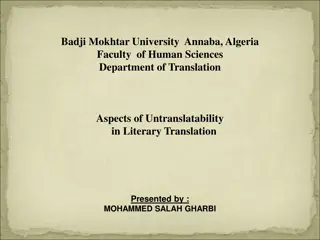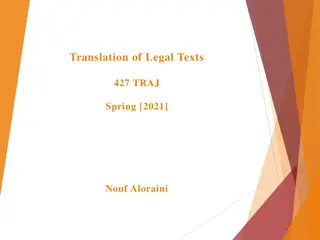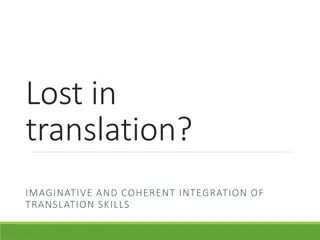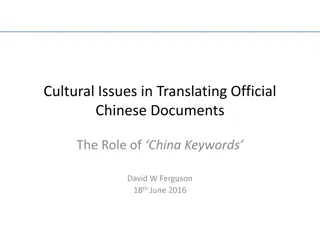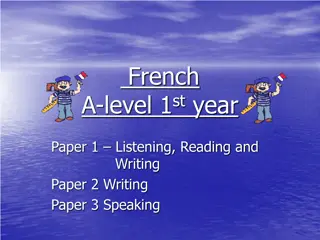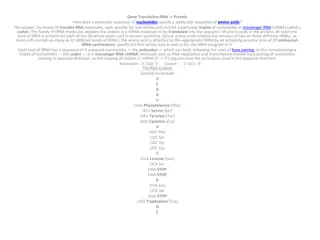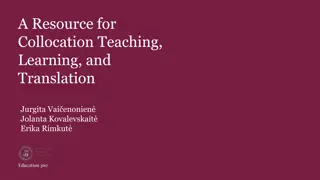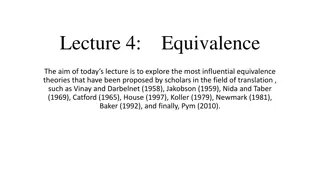Insights into Beowulf's Character and Fate in Seamus Heaney's Translation
Explore essential questions about fate, responsibility, and bravery in Beowulf through Seamus Heaney's translation. Dive into the theme of wyrd, Beowulf's resolve to face the dragon alone, his acceptance of fate, and the impact on his companions.
Download Presentation

Please find below an Image/Link to download the presentation.
The content on the website is provided AS IS for your information and personal use only. It may not be sold, licensed, or shared on other websites without obtaining consent from the author. Download presentation by click this link. If you encounter any issues during the download, it is possible that the publisher has removed the file from their server.
E N D
Presentation Transcript
translated by Seamus Heaney
Word of the Day encumber (Level 1) (verb) To hinder or impede the action or performance of. (Level 2) constrain, cumber, restrain (Level 3) The union representatives spoke out against the new restrictions that they believed would encumber police work and allow criminals to remain free. (Level 3)
Beowulf Essential Questions Then he addressed each dear companion one final time, those fighters in their helmets, resolute and high-born: I would rather not use a weapon if I knew another way to grapple with the dragon and make good my boast as I did against Grendel. Level 4 Why were Beowulf s companions resolute when he spoke to them about the upcoming battle with the dragon? Level 4 Read the passage to the left, and explain why Beowulf will be encumbered when he encounters the dragon.
Beowulf Essential Questions Throughout Beowulf, there are many references to the pagan notion of fate (see line 285) as an impersonal force that predetermines the outcome of events in a person s life. This concept, known as wyrd, was central to Anglo-Saxon beliefs. Level 3 E.Q. How does Beowulf describe his own wyrd as he speaks of his coming battle with the dragon? Level 4 E.Q. How is this older Beowulf different from the Beowulf who slew Grendel and his mother? Then he addressed each dear companion one final time, those fighters in their helmets, resolute and high-born: I would rather not use a weapon if I knew another way to grapple with the dragon and make good my boast as I did against Grendel in days gone by. but I shall be meeting molten venom in the fire he breathes, so I go forth in mail-shirt and shield. I won t shift a foot when I meet the cave-guard: what occurs on the wall between the two of us will turn out as fate.
Beowulf Essential Questions This fight is not yours, nor is it up to any man except me to measure his strength against the monster or to prove his worth. I shall win the gold by my courage, or else mortal combat, doom of battle, will bear your lord away. Level 4 Beowulf insists on going into battle alone. When has he done so in the past? Level 4 What does this motif suggest? Level 4 How does Beowulf s acceptance of fate show his deep sense of responsibility to his people?
Beowulf Vocabulary Development It would be hard to survive unscathed near the hoard, to hold firm against the dragon in those flaming depths. Then he gave a shout. The lord of the Geats unburdened his breast and broke out in a storm of anger. Level 1 The Anglo-Saxon prefix un- means not , lack of , or the opposite of Level 3 What do the words unscathed and unburdened mean? Level 4 Why?
Beowulf Essential Questions The mound-keeper went into a spasm and spouted deadly flames: when he felt the stroke, battle-fire billowed and spewed. Beowulf was foiled of a glorious victory. The glittering sword, infallible before that day, failed when he unsheathed it, as it never should have. (l 329-345) Level 4 What is the literary term for the words mound-keeper and battle-fire? Level 2 What goes wrong during Beowulf s battle with the dragon?
Beowulf Essential Questions There was a rumble under ground. Down there in the barrow, Beowulf the warrior lifted his shield: the outlandish thing writhed and convulsed and vehemently turned on the king, whose keen-edged sword, an heirloom inherited by ancient right, was already in his hand. Roused to a fury, each antagonist struck terror in the other. Unyielding, the lord of his people loomed by his tall shield, sure of his ground, while the serpent looped and unleashed itself. Swaddled in flames, it came gliding and flexing and racing towards its fate. (pp. 34- 35) Level 3 Explain why the words rumble, writhed, and gliding represent onomatopoeia. Level 4 Read the passage to the left, and explain how the dragon compares to Grendel and Grendel s Mother.
Beowulf Essential Questions For the son of Ecgtheow, it was no easy thing to have to give ground like that and go unwillingly to inhabit another home in a place beyond; so every man must yield the leasehold of his days. How does fate play a part in this battle? What are you led to believe about Beowulf s ultimate fate?
Beowulf Essential Questions It was not long until the fierce contenders clashed again. The hoard-guard took heart, inhaled and swelled up and got a new wind; he who had once ruled was furled in fire and had to face the worst. No help or backing was to be had then from his high-born comrades; that hand-picked troop broke ranks and ran for their lives to the safety of the wood. But within one heart sorrow welled up: in a man of worth the claims kinship cannot be denied. (l 355-358) Cultural Background: According to the Anglo- Saxon code of comitatus, warriors must defend their lord to the death. Thus a true hero would worry more about showing fear or being disloyal than about dying. Level 2 How do Beowulf s men react to the sight of the dragon gaining victory over Beowulf?
Beowulf Essential Questions His name was Wiglaf, a son of Weohstan s, a well-regarded Shyfling warrior related to Aelfhere. When he saw his lord tormented by the heat of his scalding helmet, he remembered the bountiful gifts bestowed on him, how well he lived among the Waegmundings, the freehold he ingerited from his father before him. He could not hold back: one hand brandished the yellow timbered shield, the other drew his sword -- . . . Level 1 What argument does Wiglaf use to convince the men that they must fight with Beowulf?
Beowulf Essential Questions To the everlasting Lord of All, to the King of Glory, I give thanks that I behold this treasure here in front of me, that I have been thus allowed to leave my people so well endowed on the day I die. Now that I have bartered my last breath to won this fortune, it is up to you to look after their needs. I can hold out no longer. Culture: The ultimate purpose of the epic hero is to leave something of lasting value to his culture. Level 4 What has Beowulf left to his people?
Beowulf Essential Questions Order my troop to construct a barrow on a headland on the coast, after my pyre has cooled. It will loom in the horizon at Hronesness and be a reminder among my people so that in coming times crews under sail will call it Beowulf s Barrow, as they steer ships across the wide and shrouded waters. (l 419-425) Level 2 What are Beowulf s final wishes?
Beowulf Essential Questions Then twelve warriors rode around the tomb, chieftans sons, champions in battle, all of them distraught, chanting in dirges, mourning his loss as a man and a king. They extolled his heroic nature and exploits and gave thanks for his greatness; which was the proper thing, for a man should praise a prince whom he holds dear and cherish his memorhy when that moment comes when he has to be convoyed from his bodily home. Wo the Geat pwople, his hearth companions, sorrowed for the lord who had been laid low. They said that of all the kings upon the earth he was the man most gracious and fair-minded, kindest to his people and keenest to win fame. (l 438-451) The closing lines of Beowulf serve as a kind of elegy a poem that mourns the death of a person or laments something lost. According to these final lines of the elegiac final lines of the epic, what qualities made Beowulf a great hero?
